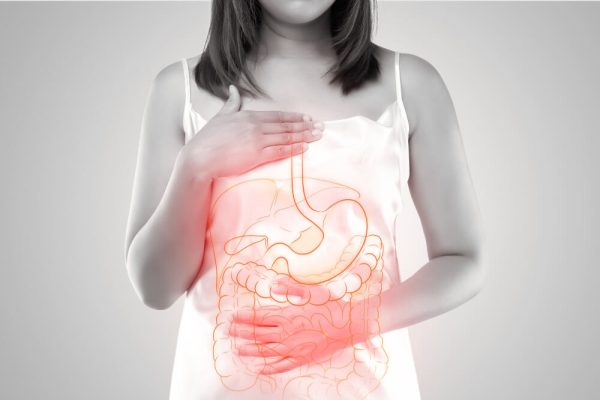Physical activity holds immense benefits for your physical well-being. Suppose you have a desk job or sit for more extended periods. In that case, you should designate 30-40 minutes of light to moderate exercise daily.
Doing so would help relieve back aches and reduce the stiffness of joints. But what about mental well-being? No matter the intensity, physical activity boosts mood and increases mental alertness. There are other benefits of enhancing physical activity on mental health, which this article will address ahead.
Table of Contents
Why does physical activity improve mental health?
If you were to stop someone at the gym and ask them why they work out, you’re most likely to hear one of the following responses:
- “It makes me feel good.”
- “I feel stronger afterward.”
Exercise improves cognition, concentration, and mood. While the link between the two is beyond the scope of this blog post, it may help to understand why you “feel good” after working out.
The human body releases chemicals that help with brain functionality. These chemicals are neurotransmitters and relay information within the nervous system and the rest of the body.
These chemicals induce a euphoric feeling every time they release, and that’s why you feel good after breaking a sweat.
Besides releasing neurotransmitters, exercise also helps eliminate toxic elements from the body. Exercise is also beneficial if you’re trying to stay sober.
Attaining sobriety is difficult, but sweating out toxins can be a game-changer. Besides, rehab centers have a range of medical and therapeutic services to help you in your path to recovery.
Regardless, if you suffer from a severe addictive disorder and are looking for help, the Palm Beach Institute may become your savior. The bonus is that you can also find a small community of supportive folks there!
How does physical activity impact mental health?
Boost mood
Light to moderate physical activity can drastically impact your mood. Studies have shown that people feel good after being active for some time, compared with periods of inactivity when they are watching television or reading. You would instantly feel more alert and relaxed after working out as sweating helps release toxins and elevates mood. However, the intensity of activity matters, light to moderate physical exertion can also boost mood. Specifically, walking around the block would be fine for those who find it difficult to hit the gym five days a week to engage in hardcore workouts.
Reduce stress
Experiencing stress is part and parcel of life. Anyone can share it at any moment, but that doesn’t mean you can’t take control of it. While it is difficult to maneuver the factor that causes stress in certain situations, it can help to release tension by engaging in moderate to intense physical activity. Often, stress isn’t due to a single factor but is the culmination of a range of factors like abrupt sleep cycle, dietary imbalance, or changes in time zones. Such situations can also trigger the release of stress hormones in the body or put you in an exalted state of “fight or flight.” In that regard, physical activity is essential for reducing stress as it lowers stress levels and helps feel delighted.
Exercising outdoors has a different impact
While any form of physical activity can boost your mood and release stress, studies have shown that outdoor work impacts mood. Those who exercise outdoors regularly have greater self-esteem, feel happier, and are less likely to develop depressive disorders or fatigue. These people are also more likely to stay consistent with their workout regimens than those who work out indoors.
Heightened self-esteem
Since exercise helps release stress from the body and boost mood, it is also likely to increase self-esteem. Self-esteem pertains to what we feel and think of ourselves. Self-esteem indicates the state of mental health and is linked with mood and behavioral disorders as well. However, physical activity profoundly impacts self-esteem as it reduces stress and makes you happy. Heightened self-esteem also gives an outlook on how you might deal with stressors in your life.
Impact on anxiety and depression
As mentioned earlier, exercising relieves stress; physical activity profoundly impacts mental illnesses like depression and anxiety. While it is not a standalone treatment for depression and anxiety, it helps subside some symptoms. Physical activity also helps to cope with symptoms of anxiety. Regardless of the severity of your mental health illness, engaging in some form of physical activity like running, swimming, or playing a sport can be beneficial for releasing stress and feeling better.
How to get started with physical activity?
The first step to becoming physically active is to decide that you want this for yourself and your health. Of course, exercising regularly or running every day has numerous benefits. Still, you must know why you want to start working out—knowing your “why” will help you decide what you want to do. Are you into water sports, or will anything with light to moderate exertion do? Or do you prefer doing light stretches daily?
Next, you want to ensure whether it’s safe to work outside or indoors. Sometimes it’s better to walk around the block than run on the treadmill. Staying in nature leaves a different impact on your mental and emotional well-being.
Once you have started some form of physical activity, stay consistent. If you feel like you would flake in less than a month, have a friend or family member keep a check on you or engage them in your fitness sessions.
Conclusion
Keep in mind that physical activity is something that you have to make time for. It has loads of benefits but also requires patience and consistency from your end. If you have a full-time job, it may be challenging to go to the gym twice a week, but you can do light stretches at home or walk for an hour around the block. Regardless, some form of physical activity is necessary for your everyday routine, or your joints would stiffen up, and body aches would kick in.
I am an Ambitious girl with a special interest in writing and sharing my knowledge. I love to hangout with nature and learn from it. My words will display the power of nature to the best as I love to write about the environment.





